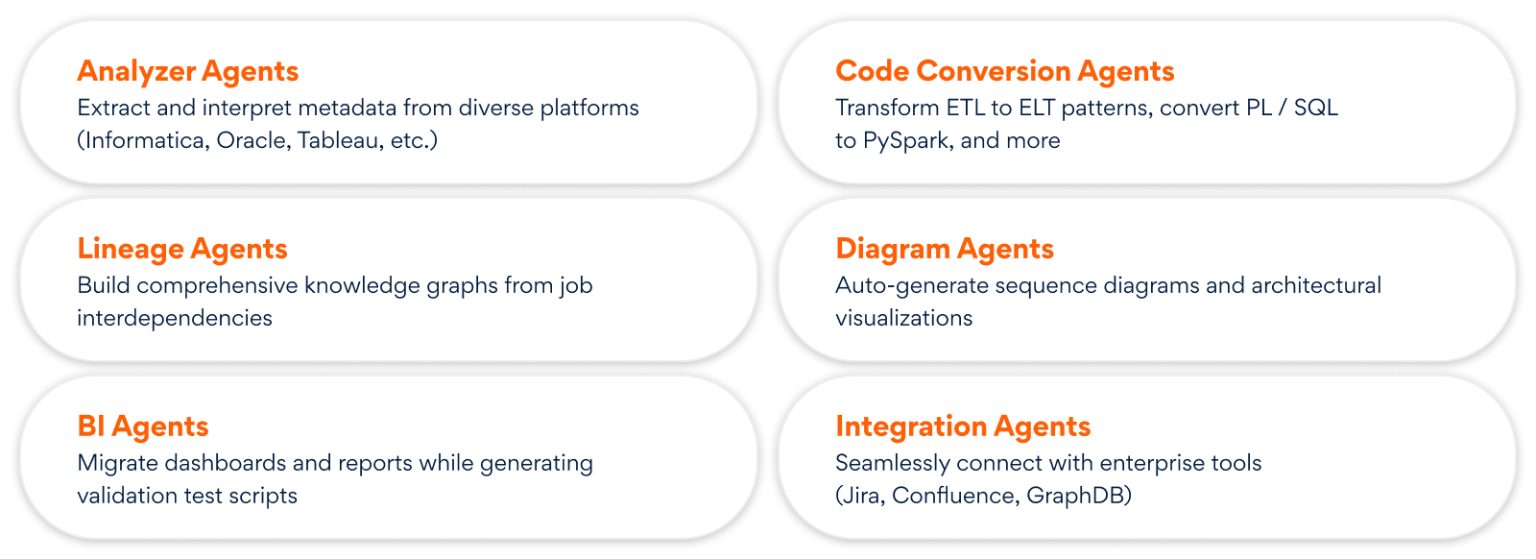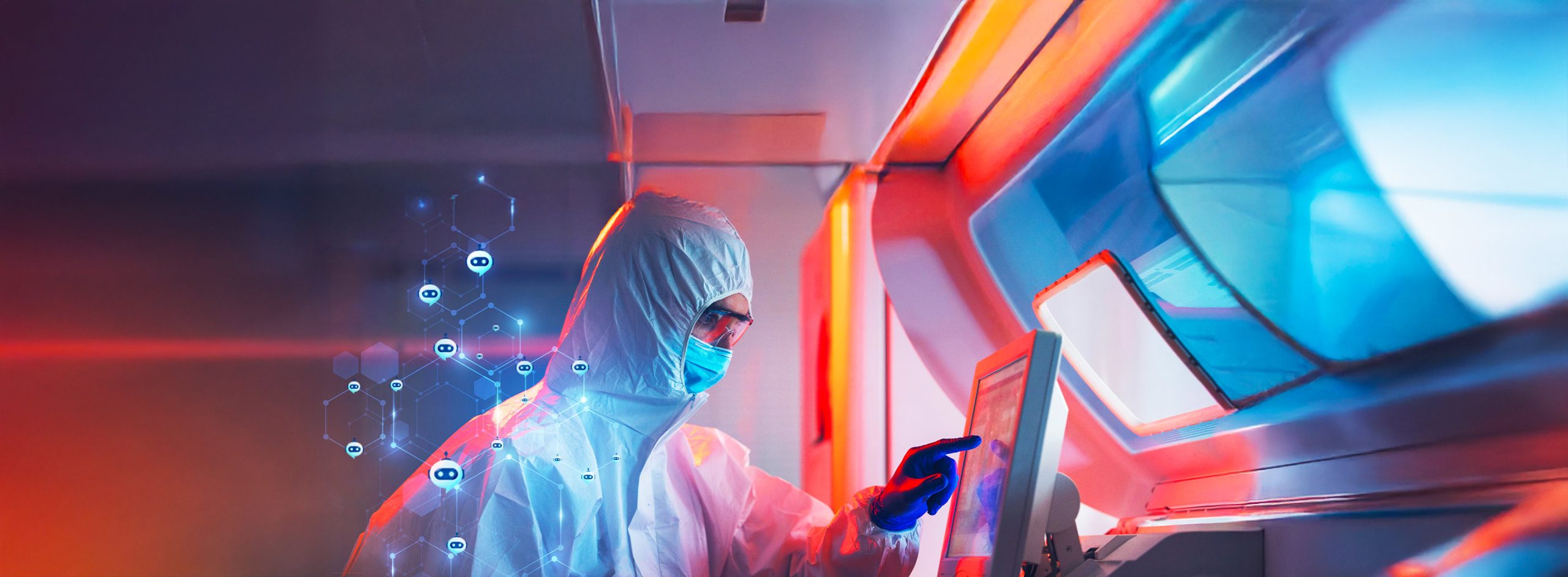Outdated data systems are the biggest roadblocks to any AI-driven enterprise transformation. Legacy ETL pipelines, siloed data warehouses, and rigid business intelligence (BI) tools weren’t built for the velocity, variety, or volume of data required by modern AI applications. Even a recent study by Gartner suggests that organizations that prioritize AI-ready data will increase their Generative AI (GenAI) model accuracy by up to 80% and reduce costs by up to 60%. iAURA 2.0, powered by Agentic AI and deployed on AWS’s AI-first architecture, offers a radically new way to modernize with intelligence, automation, and speed at the core.
The Strategic Imperative: Why AI-First Architecture on AWS
AWS’s AI-first architecture, featuring services like Amazon Bedrock, SageMaker, and GPU-accelerated compute, makes AWS an ideal partner for transforming data platforms into AI-native architectures. The architecture offers:
- Elastic, pay-as-you-go performance
- Seamless integration with AI workloads
- Built-in security and scalability
However, organizations face multiple challenges, as migrations from legacy tools like Teradata, Informatica, Oracle, or BusinessObjects require a smart and automated approach to reduce tech debt and time to market. That’s where iAURA excels in generating value at an accelerated pace.
Introducing iAURA 2.0: The Agentic AI-Powered Migration Accelerator
iAURA 2.0 is a comprehensive suite of Agentic AI and large language model (LLM)-powered accelerators specifically designed to automate complex data migrations. The platform delivers:
- End-to-end ETL, DWH, and BI migration automation
- Intelligent code conversion with lineage preservation
- Self-evolving agents that adapt and improve throughout the migration process
- Tight connections with AWS services and support for migrations to platforms like Amazon Redshift, and modern BI tools like Amazon Quick Sight
Step-by-Step : How iAURA Powers End-to-End Migration
iAURA 2.0 automates the entire migration lifecycle from assessment to QA by embedding Agentic AI into every migration project phase.
- Inventory Analysis
The platform’s Analyzer Agent extracts metadata from legacy ETL, database, and BI systems. It analyzes lines of code, DDL/DML statements, joins, nested queries, loops, and cursors to assess the complexity of the code— categorizing it as Simple, Medium, or Complex. Additionally, it generates comprehensive documentation, including SQL code flowcharts and sequence diagrams, to help understand the logic and structure of the code.
- Planning
iAURA’s Planning Integration Agents play a key role in the migration planning process. Using static code analysis, iAURA identifies the inputs and outputs of each job built in Informatica, BTEQ, and Python. It then builds and visualizes a detailed knowledge graph that maps the relationships between various jobs and data elements. This graph supports community and cluster detection, which helps teams plan sprints more effectively, define optimal migration sequences, and prioritize critical components. Additionally, iAURA can automatically generate project tasks in tools like Jira or Azure DevOps, streamlining execution.
- Automated Code Migration
iAURA helps automatically convert old ETL and procedural code into modern formats. For example, iAURA can automatically migrate code from Informatica to AWS Glue, and from Teradata, Oracle, or PLSQL to Amazon Redshift. It also migrates BI reports to tools like Power BI or AWS Quick sight, while keeping the original logic intact and providing feature parity between various source and destination tools.The platform works in both interactive and batch modes. It uses shared frameworks to handle things like logging and auditing. iAURA also upgrades the way data is processed— replacing slow, row-by-row methods with faster, bulk column processing that works better in the cloud.
- Verification
iAURA Verification Agents and LLMs make it easier to check that everything was migrated correctly. It automatically creates test cases for the migrated tables and performs data validation and reconciliation to ensure the results match the original system. It also uses machine learning (ML) to spot any unusual patterns or errors in the data.
- Data Migration
iAURA Data Migration Agents ensure the smooth and reliable transfer of data from legacy systems to modern cloud platforms, e.g., if an enterprise wants to migrate from Teradata to AWS Redshift, then iAURA’s Data Observability platform performs data reconciliation to ensure the migrated data matches the data at the source location accurately. It also includes report validation to confirm that dashboards and reports continue to function correctly after migration.
- Data Quality & Parallel Runs
iAURA ensures the quality of your migration by running parallel batch tests, comparing the old and new systems side by side. It monitors important metrics like data freshness, quality scores, and completeness with the help of a data quality accelerator to catch any issues early. These results are shown in easy-to-understand dashboards for quick analysis and action.
Inside iAURA’s Agentic Architecture
iAURA’s approach decomposes complex migration tasks into autonomous, intelligent agents that specialize in specific domains while collaborating seamlessly. Each agent operates through an LLM-powered feedback loop:
Input → LLM Processing → Action → Observation → Adjusted Action → Optimized Output
Specialized Agent Portfolio

The Business Impact: Beyond Technical Migration
iAURA represents more than a technical upgrade; it’s a strategic transformation that positions enterprises for AI-driven success. By combining LLM intelligence , the power of automation, and the flexibility of AWS cloud services, iAURA doesn’t just migrate data— it transforms business capabilities.
Organizations using iAURA experience a variety of benefits:
- Accelerated Time-to-Value: Reduced migration timelines by up to 70%
- Enhanced Data Quality: Automated validation ensures higher accuracy and consistency
- Future-Ready Architecture: Cloud-native designs that scale with business growth
- Reduced Risk: Comprehensive testing and validation minimize migration failures
- Cost Optimization: Efficient resource utilization and automated monitoring
Legacy modernization is no longer optional— it’s a competitive necessity. iAURA’s Agentic AI-driven approach fundamentally transforms how organizations evolve from fragile, siloed data systems to resilient, AI-native architectures that power intelligent business decisions.
Click here to learn more about, schedule a demo, or talk to our experts about your specific data migration needs.
Author’s Profile
Akshay Chitlangia
Chief Principal Consultant
Ranga Raghavendra Gowd
Senior Manager in the Data & AI Practice








